We’ve lost the essential life skills that used to be commonplace in our world. Isn’t it time we reversed that trend?
We can all learn to embrace a more self-reliant lifestyle by tackling some basic life skills. Just remember that it’s a journey and may take some time!

When my eldest son left for college I got a kick out of hearing some of the daily dilemmas that he and his roommates faced. Basic survival skills are not being taught at home these days, folks.
This is quite possibly because in our shift toward outsourcing just about everything, these kids’ parents have never learned these basic survival skills themselves, the skills that used to be commonplace in our world. Isn’t it time we reversed that trend?
Quote from random college kid (not mine): “I can tell you one thing. Cup-o-Noodles are getting old really fast.”
Cooking skills we should know
- Learn what to stock a pantry with for uncertain times.
- Know how to make at least three inexpensive meals that don’t come from a box. Refried beans are cheap, easy, and a big batch will last for days. My white chicken chili is always a people pleaser, as is this chicken soup. And if you’re short on time, this sausage lentil soup is a fast fix. Note that I’m recommending recipes that make a pot full so there will be enough for several meals if you’re cooking for a small family.
Take a Peek Inside My Book!
Get a free excerpt from my book, Attainable Sustainable: The Lost Art of Self-Reliant Living! You’ll also get my free weekly newsletter, complete with recipes, gardening tips, and a little peek at what’s going on around here — both the zany and the mundane.
- Making dry beans from scratch is less expensive than starting with canned beans and creates less waste. Keep some on hand and learn how to cook them.
- Learn to flip a pancake. I don’t care if it’s a pancake you’ve made from scratch (and hey, here’s how to do that) or one that’s out of a box, but if you’re flipping it yourself, you’re not counting on IHOP for your stack. I can’t offer a tutorial on this one. You’ll just have to practice.
- Homemade pizza is totally doable, especially with my sneaky little shortcut.
- How to fry an egg.
- How to roast a chicken.
- Learn how to make broth or stock with that roasted chicken. If you have a big pot and access to water, there’s really no excuse for not knowing how to do this. Unless you’re vegetarian. You folks can learn to make a rich vegetable broth.
- Know how to sharpen a kitchen knife.
- Finding real food in a grocery store or supermarket takes a special skill and it seems to get harder and harder. The basic rule of thumb for shopping wisely is to stick to the outer edges of the store. This is where you’ll find the produce, the dairy section, and the meat counter. You’ll likely need to enter the central aisles for ingredients like beans and pasta, but for the most part these are just rows of junk and processed foods.
- Learn how to make oatmeal. Make it on the stovetop or with this simple canning jar hack, no matter. There’s nothing like a warm breakfast to get your day started.
- Knowing how to cut up a whole chicken is one of those essential life skills that will save you buckets of money. Instead of buying pieces, choose a whole roaster (or butcher your own) and cut it up yourself.
- How to bake a potato. If you can bake a potato, you won’t starve. They’re cheap and filling and versatile. You can eat them plain, or cut them up and add them to an egg scramble, fry them, or mash them.
- Rice and grains are an inexpensive way to feed the family. Here’s how to cook those. (And I’m not talking Minute Rice.)
- Know how to make the most of the food you buy. Peeling apples for a recipe? You can use the peels for more than just compost. You can use radish leaves to make pesto and transform beet greens, too.
- How to peel hard boiled eggs the easy way.
- Knowing how to bake without an oven will serve you well in case of emergency. Or in case of camping during someone’s birthday. And while you’re at it, learn to cook over an open fire.
Basic living skills we should know
- Thread breaks. Learn to sew on a button. This is where I confess that my own son left home without this skill. The boy made an entire chain mail hauberk, but somewhere along the line I forgot to teach him this simple skill. Oops.
- And while we’re talking about thread and needle, learn a few basic stitches for mending and hemming (and hey, if need be, stitching a wound).
- Know how to tell time on an analog clock. I’m amazed at how many people simply cannot tell time if their digital device is not working. It’s a bit embarrassing.
- How to balance a checkbook.
- Learn how to pound a nail.
- Check out these ten simple steps towards self-reliance that you can take today.
- Learn how to use wood as a source of heat.
- How to create a family budget.
- How to change a tire.
- Know how to do laundry. And learn to clean fabric-covered items that won’t fit in the washing machine.
- How to fuel a vehicle.
- Learn how to dry laundry on a clothesline. It will save you money and get you outside.
- Know how to calculate and make change. You might not ever work behind a cash register, but if you know how to do this you’ll be able to catch any mistakes that happen when you’re a customer.
- Be able to identify a credible source. With so much information and “news” flying around the web, it’s easy to get caught up and forget that anybody can write things on the web. Even though it’s on the internet, it just might not be true. Do your research.
- What to do when there’s a shortage of toilet paper.
Life skills we should know for survival
- Knowing how to perform the Heimlich maneuver is a skill you might not ever need, but one you should know.
- Make sure your car is ready in case of emergency.
- Learn first aid and CPR.
- Know how to start a fire in a wood stove as well as an open-air campfire. You could even learn how to make your own char cloth fire starters.
https://youtu.be/_E_9te0nq3A
- Learn what edible and medicinal plants are available in your region and how to forage for them ethically.
- How to purify water for drinking.
- How to start seeds and grow vegetables, as well as how to save seeds from heirloom crops.
- Reading and using a compass.
Advanced life skills for uncertain times
- Know how to keep a flock of chickens or ducks for eggs or meat.
- Learn to butcher animals. It’s not one of the most palatable jobs, but knowing how to cull your chicken flock or harvest a wild animal will serve you well when times are tough.
- Growing a garden is a great way to put food on the table when times are tough, but be sure you’re growing enough calories to keep bellies full.
- Delve into home canning to preserve fruits and vegetables for your pantry. This used to be one of those essential life skills that everybody know, but no longer. A simple water bath method is good for fruit and pickles, but knowing how to use a pressure canner allows you to put up vegetables, meat, and fish. Fermentation is another way to extend the shelf life of fresh foods.
- A rocket stove is a great way to cook outdoors, whether camping for fun or survival.
Originally published 2016; this post has been updated.

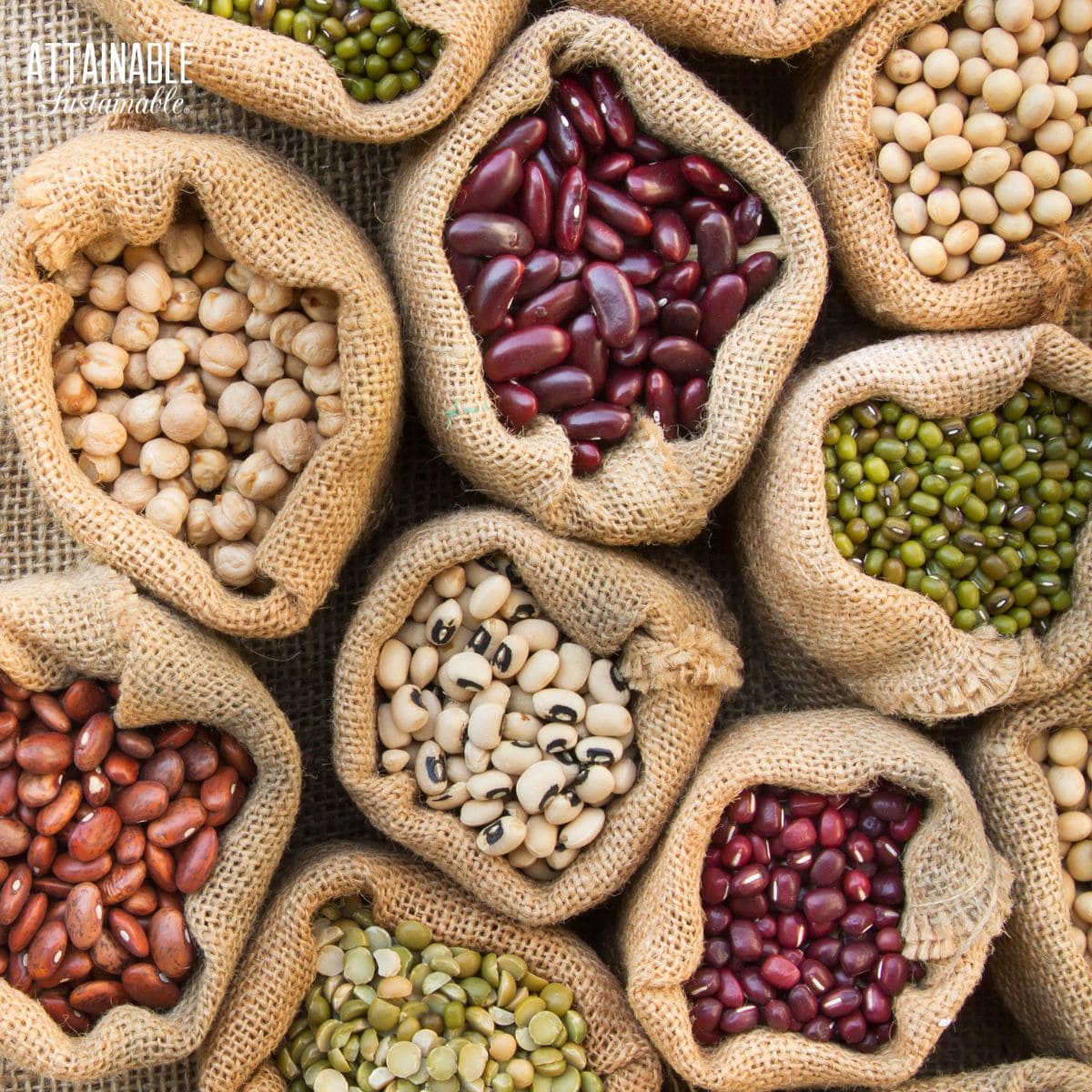
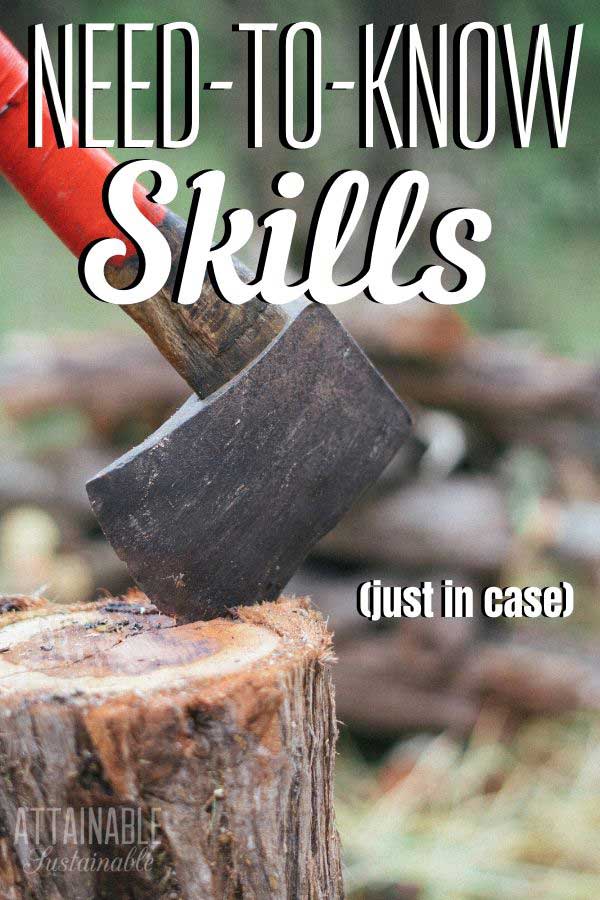
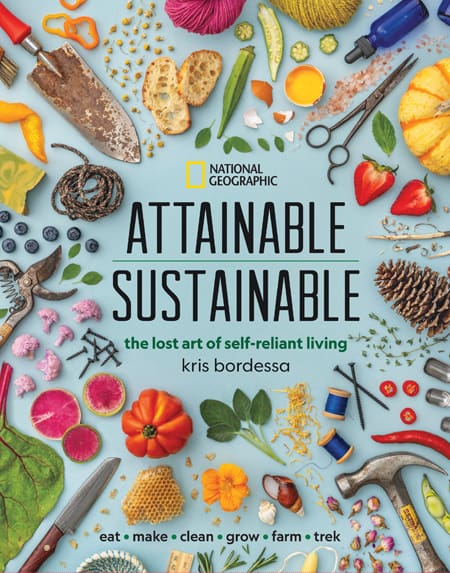
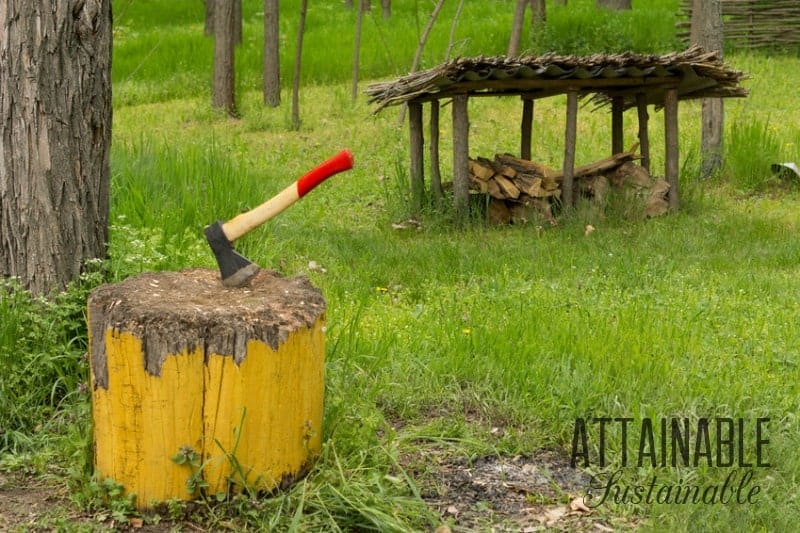

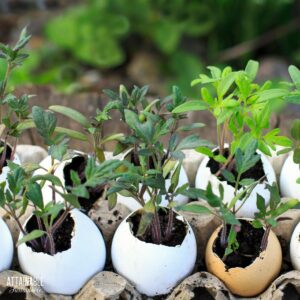
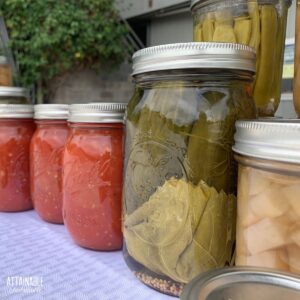
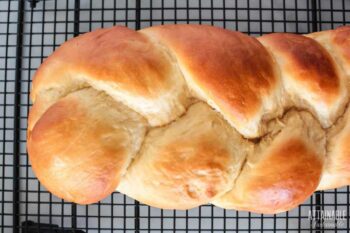
My daughter cooks without boxes, always fresh vegetables, etc. She now grows what she can and is teaching her children how to use natural foods, foraging, making string, etc. She has convinced me to forage more and although I have always cooked from fresh, I am beginning my home grown garden, etc. It is wonderful, totally enjoyable and makes me happier than I have ever been in 67 years!!!!!
Love it, and love that your daughter is passing it to the next generation.
Check out “The Foxfire Book” if you can still find them. Plenty of pictures, instructions, folklore, build log cabins, weave baskets, bottom chairs, dress out hogs. Tons of info from old timers.
Thanks for the recommendation, I will. 🙂
Loved the list! Several things I can do, some have a little knowledge, others I need to learn from scratch. Thanks for the information.
You’re welcome, glad it could help 🙂
I just started working on this list for myself. Things on this list I didn’t think about.
Great list. I would add learning a few basic knots & how to lash things together.
I love everything! One thing I didn’t see was how to learn to fish ,bate a hook, tie a line clean a fish so you can cook and eat it . Thank you so much for this so many people don’t have life skills any more I am glad I do.
It was really inspiring to realize I knew so many of these! And now i have an idea list on skills that could be useful.
Another useful skill is being able to tell quality! Too many think a quality item has to have the biggest price tag and be name brand. Me and my husband have been practicing checking at thrift stores for things like glassware, clothes, certain toys, and keeping an eye on sales at other stores for things like electronics. It saves a ton of money and sometimes our item actually does better than their overpriced items instead of the standard equal.
This website rocks! I’m a high school Art and Media teacher living in the city now with my kids. My husband and I both grew up constantly in nature and backpacking/camping around the world. We are always trying to cook from scratch and teach survival skills to our kids. This website is so great, I’ve forwarded it to the Sustainability Coordinator at my school to share with everyone on Earth Day next week. Thank you!
Thanks for sharing!
Scary to realize I know Everything you have on that list and the extended list! Yay!!
But…. I was a girl scout and a GS leader and a Cub Scout leader also with my boys
And I was raised by an Iowa Farmer/NASA Engineer, I’m an organic farmer who raises chickens for eggs and meat and process same and all my own veggies, fruits, herbs and flowers (My “Farm” is a mere 3/4 acre of my 2 acre property)
If you don’t know how to do something, trust me, someone has put it on YouTube! Learned how to process chickens from a hilarious video by a woman who said every single thought you could think up while watching her video! I laughed my tea right out my nose!
It/s important to keep these skills alive and moving along from generation to generation!
Love it!
Great list. Between my husband and me, we can check off quite a few of those skills. I just have one question. When I was growing up, we had friends who canned and my mother-in-law used to can, they didn’t have pressure canners. I don’t have a pressure canner either. Does that mean I can only can fruits and vegetables?
Things that are considered safe for water bath canning include fruits, PICKLED vegetables (the vinegar makes the recipe acidic enough), and many tomato recipes. Regular vegetables, meats, and some sauces are NOT acidic enough to safely can in a water bath and must be pressure canned.
I have a 4 yr old, i have repairs to a fine art!!! Makes me feel an efficient motger!
This is one of the best lists on survival skills I have come across in a long time. Repairing clothing is one that I had not even thought of. I mean, sewing is not a much used skill now a days. But, it will be a great skill in a post apocalypse type society. Maybe I need to pick that skill up and a few more.
-Best,
Monroe
How about leather shoes! A little polish, yes they still make polish, will keep a pair of leather shoes good for many years. ‘Tennis shoes’ last about 6 months then it’s time for a new pair. A pair of leather shoes form to your feet and are good for many years.
I can’t imagine not knowing the basics, I guess it’s a sign of the times. I still cut up chickens and boil the bones, have a garden, can, make jelly, and use essential oils. We need the basics. Thanks for bringing this to the forefront.
Nice list. I thought most of these were very basic and things everyone knew how to do because of how I grew up. Now I live near my fiance’s family and found out that some of them can’t cook anything outside a microwave. Knowing these kind of things not only saves money but gives you a lot of power and independence.
It’s hard to understand how someone can simply not know something that’s been so ingrained in your life, isn’t it? We can pass it on, though, so that’s cool.
These are great skills, basic skills, I would add the use of Epsom salt in gardens or hydrogen peroxide brushing teeth, laundry etc.
I’m 52, I told my 40 year old wife I wanted regular popcorn not microwave from the store to make popcorn the “old fashion way. So, she bought me a hot air popper for Christmas. To her this was the old fashion way. I have since shown her how to make it on the stove in a pot. W have had popcorn almost every day since.
This is hilarious.
Wow… I object to how people denigrate microwave ovens… as they gossip or surf the internet on their cellphones… Hey folks don’t you know that cellphone technology is microwave technology?
SMH…
I use my microwave oven extensively to reheat food or to even cook a meal. It reduces the time needed to cook the food thereby reducing the energy needed to cook the food. Why bake potatoes in a conventional oven for an hour when you can get it done in 8-10 minutes? Why slow roast a pot roast for several hours in a conventional oven when you can do it in another appliance much faster? (Think stovetop or electric pressure cooker or a microwave oven) If you had to cook with a wood fire, how long would your fuel last? Think of alternative cooking methods… Solar oven, hay box/wonder box, rocket stove, Dutch oven cooking, pit roasting in an earthen pit, etc. Try not to be so ‘green’ that you become technophobic. That’s simply silly & short sighted. Make use of the resources you have, while you have them. Then move on to the next resource when you have exhausted one. Be flexible & be resourceful for yourself. Being flexible & resourceful is a skill. Use it.
Microwave ovens are not safe. They change the molecular structure of ALL things cooked in them, even water.
Just because they are the “same” technology of something else doesn’t make them a good idea or safe.
The foods you are eating from a microwave is NOT the same food that you put in it.
I choose to be resourceful by cooking on a stove, an oven, in a crockpot, in a pressure cooker, etc. Not using a microwave.
Please, oh *please* learn how to 1) fry an egg, 2) scramble eggs, and 3) make an omelet — some leftovers, some cheese and/or salsa, and some bread on the side turn an omelet into a good meal.
And how to shop in a thrift store. So much more frugal!!!
Kris, that’s a comprehensive list. It’s kind of fun to look down it and figure out which ones I can tick off.
Sarah worked at a free-store clothing charity for a time as a volunteer. People tossed perfectly good clothes because they lost a button. That was a skill that my husband learned in Boy Scouts. Along with how to shine his shoes.
But I’m not surprised that your son missed that lesson. I don’t believe I taught it to my sons, either. Oops. Thankfully, I did remember to teach my daughter. Sarah was repairing buttons for her roommates this summer, too.
Born in early 50,s, I learned to do just about everything on the list and then some. I learned to sew, jar,repair things. In our house you never threw anything out unless it worn out or couldn’t be fixed. I became a bakery manager at a grocery store. I made lots of goodies from scratch, yes from scratch. We had a good customer base that would buy just about anything we made. From scratch no adative and preservative, much butter for you. We need to teach our children self reliance. Modern devices are all well and go, but if the SHTF, those devices more then likely will be useless .